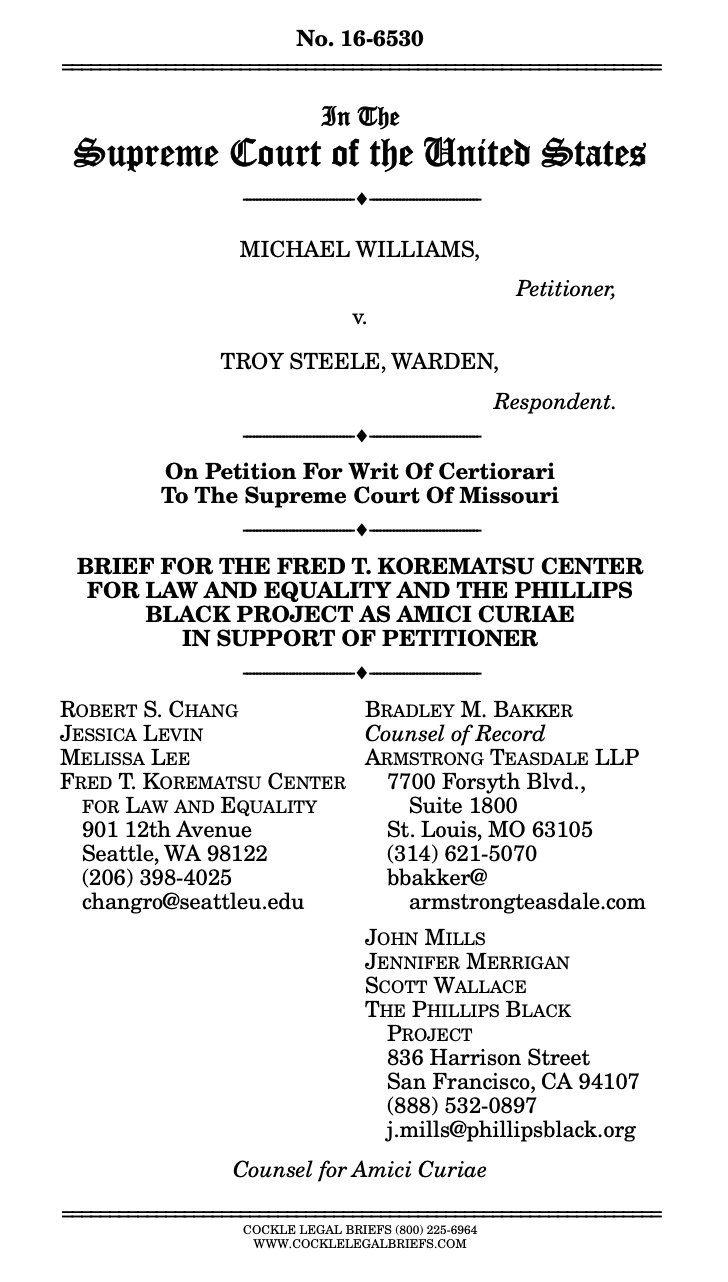
Summary of Argument
Miller v. Alabama gave hope to youth offenders sentenced to unconstitutionally long sentences that they might experience freedom instead of dying in prison. Miller’s promise was twofold: first, that individualized sentencing proceedings would account for their diminished culpability, and second, that a mechanism such as parole would provide a meaningful opportunity to obtain release. In many states, including Missouri, this promise has been illusory.
Mr. Williams’s sentence, as well as the sentences of four other petitioners whose certiorari petitions were filed contemporaneously, imposed prior to Miller, were mandatory sentences of life without parole. Missouri’s current parole process, enacted on the heels of Montgomery v. Louisiana, will not provide Mr. Williams with either an individualized sentencing proceeding or a meaningful opportunity to obtain release. Instead, Mr. Williams will receive an ill-defined, and perhaps single, opportunity to petition the parole board for release after serving twenty-five years. Missouri’s parole process lacks basic procedural guarantees, predictably leading to few instances of reprieve from the board.
Missouri is not alone its failure to provide Miller’s guarantees. Virginia claims that geriatric release provisions, which permit the possibility of release after an inmate reaches the age of 60, provide a meaningful opportunity to obtain release. North Carolina provides neither notice nor an opportunity to be heard in its parole process. Maryland, in the last two decades, has never granted parole to a juvenile offender sentenced to life.
This case presents an opportunity to ensure Miller’s requirement that children have a meaningful opportunity for release by stopping states from giving lip service to Miller through inadequate parole processes. In the alternative, this Court should grant Mr. Williams’s petition, vacate the Missouri Supreme Court’s dismissal, and remand the case to the Missouri courts to consider in the first instance whether Mo. Rev. Stat. § 558.047.1(1) (2016) in fact provides a meaningful opportunity for release for juvenile offenders who have received unconstitutionally long sentences, as mandated by this Court in Graham, Miller, and Montgomery.